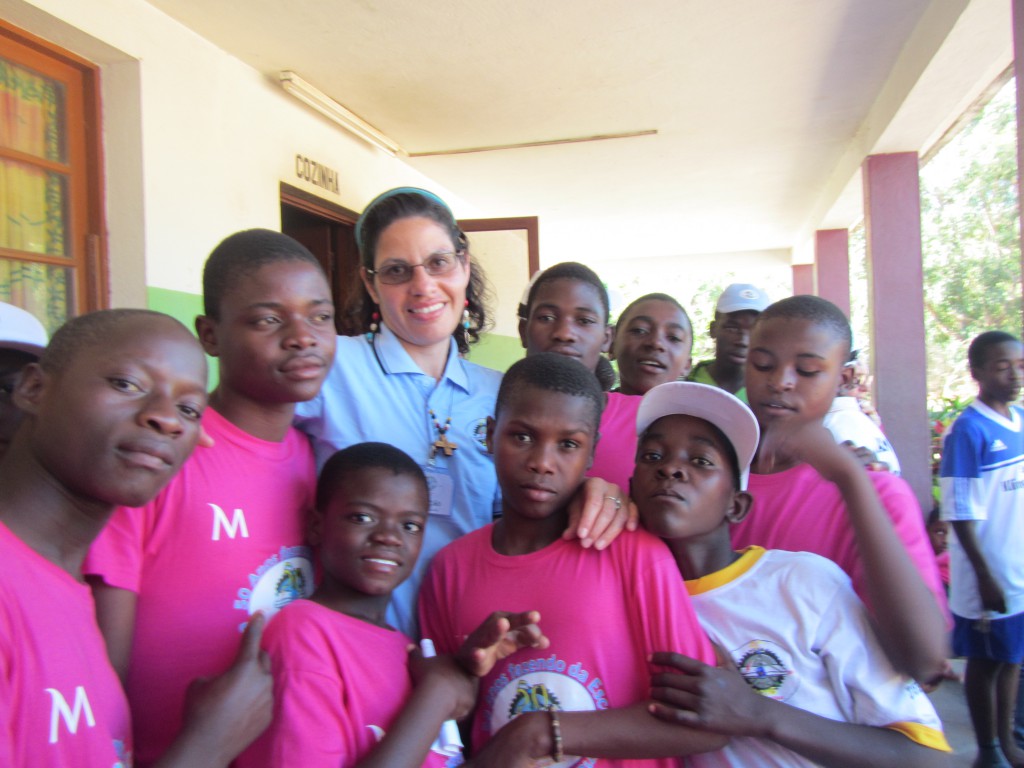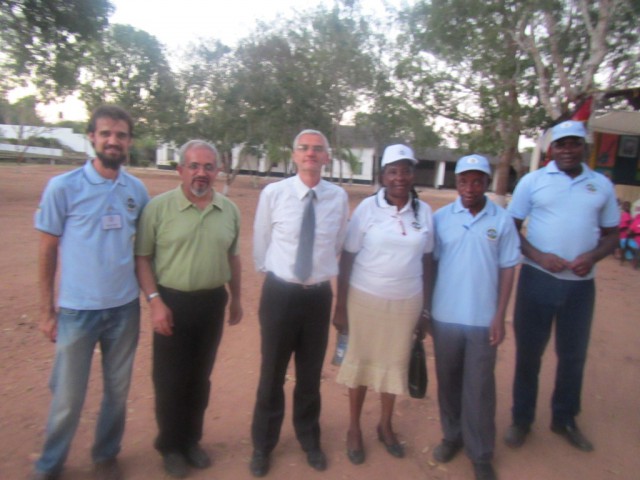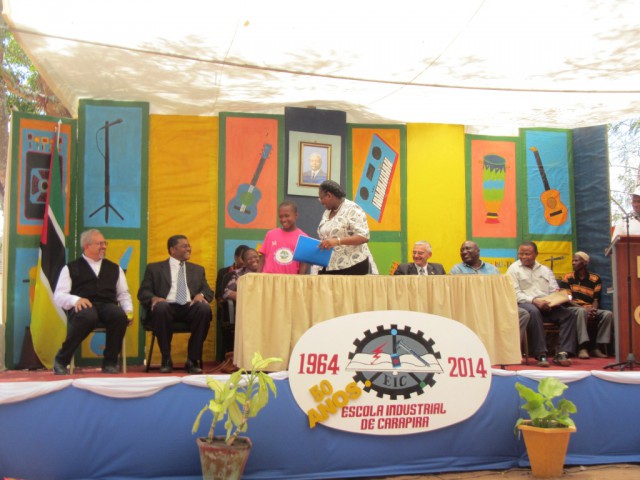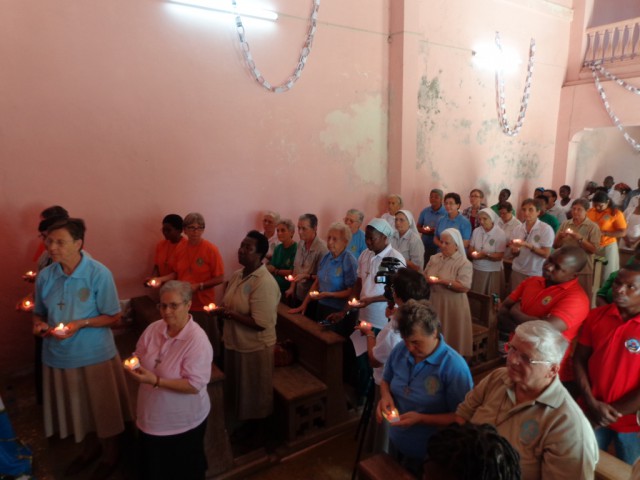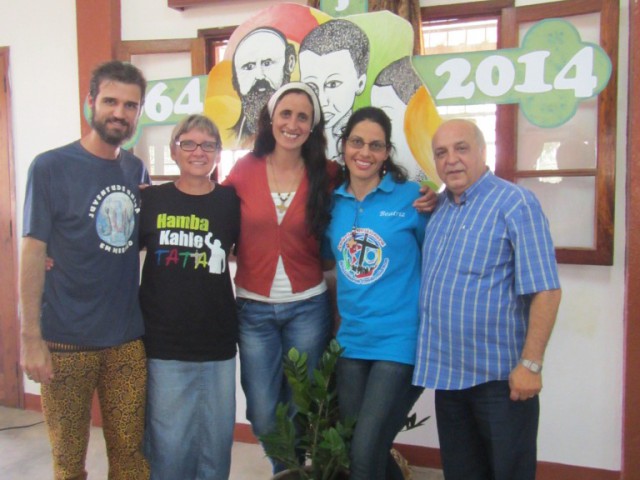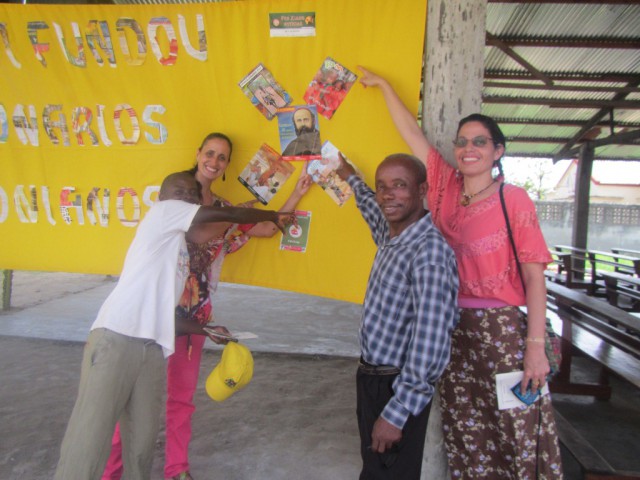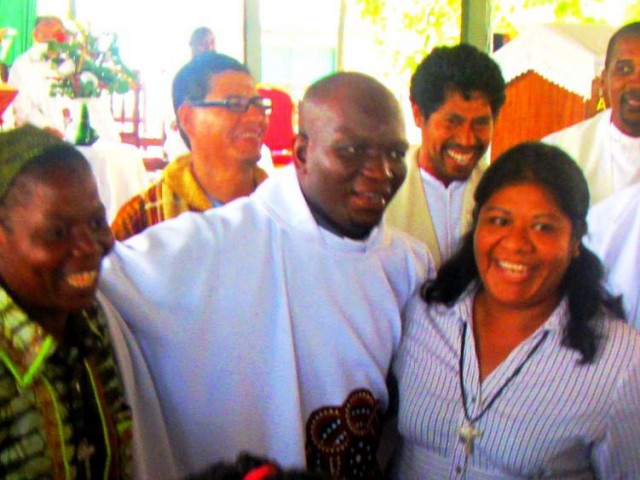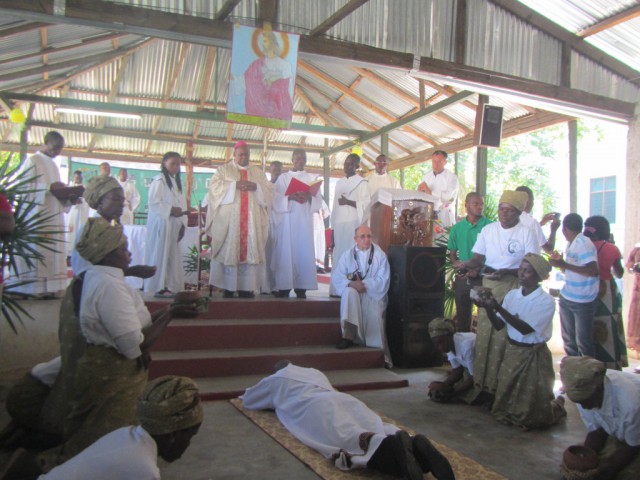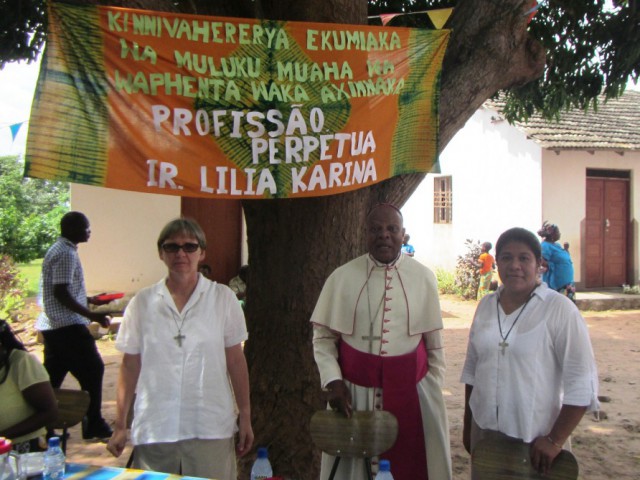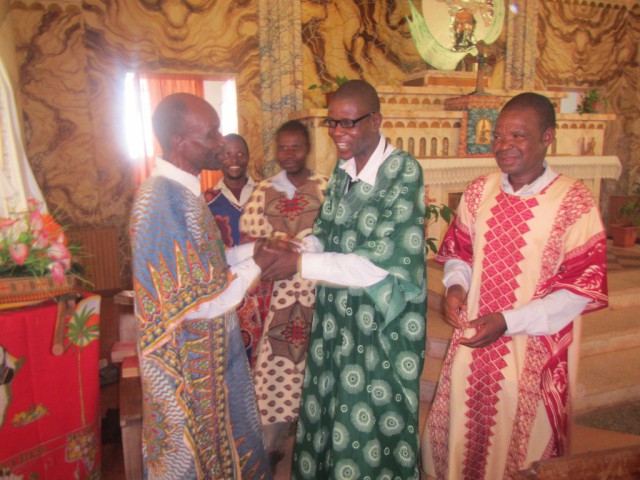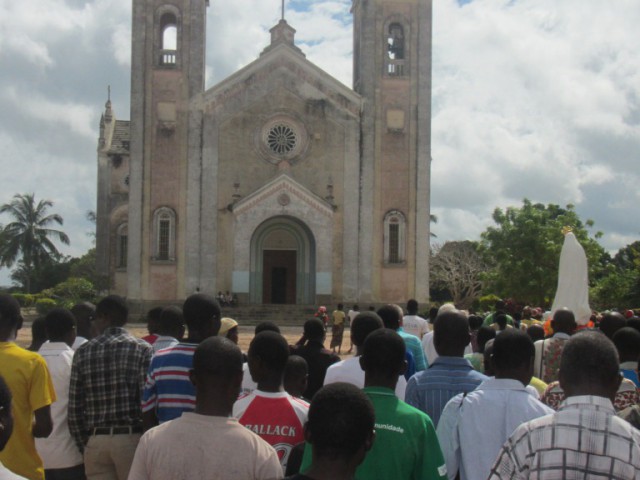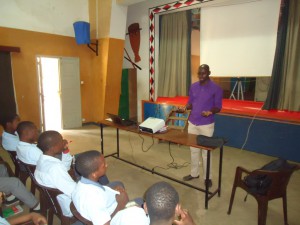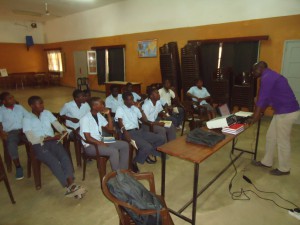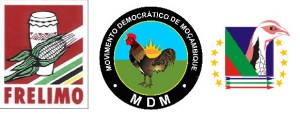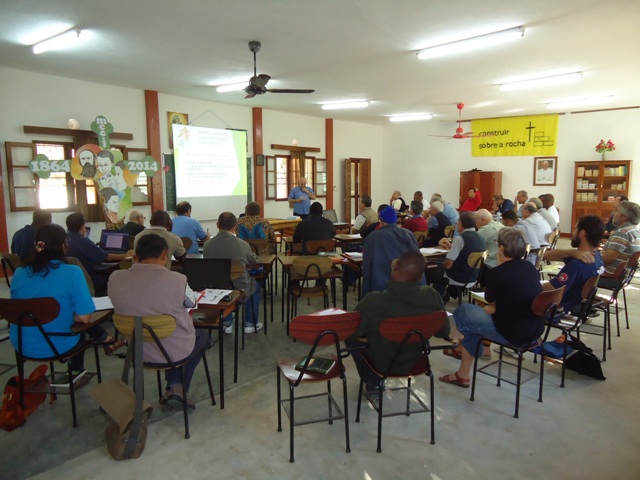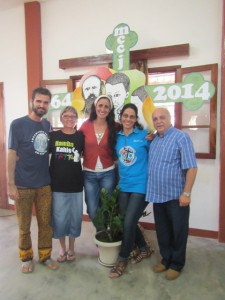In the joy of receiving the Baby Jesus in our hearts transforming everything that we can not do by ourselves and hurt us, having closed our calendar year in harmony with ourselves and our brothers. I start this new year sharing with you what I’ve lived in this mission until today.
I end this 2014, making community with the Comboni Lay Missionaries, Flávio Schmidt (Brazilian) and Márcia Costa (Portuguese), and joining forces with the Mozambican CLM in formation Francisco and Margarida better known as marriage Martinho, Ancha (all three are teachers) Zeferino (young from the community); working in harmony with the missionary team of the Comboni Missionaries (Fathers and Brothers) and the Comboni Sisters, in the parish of Carapira.
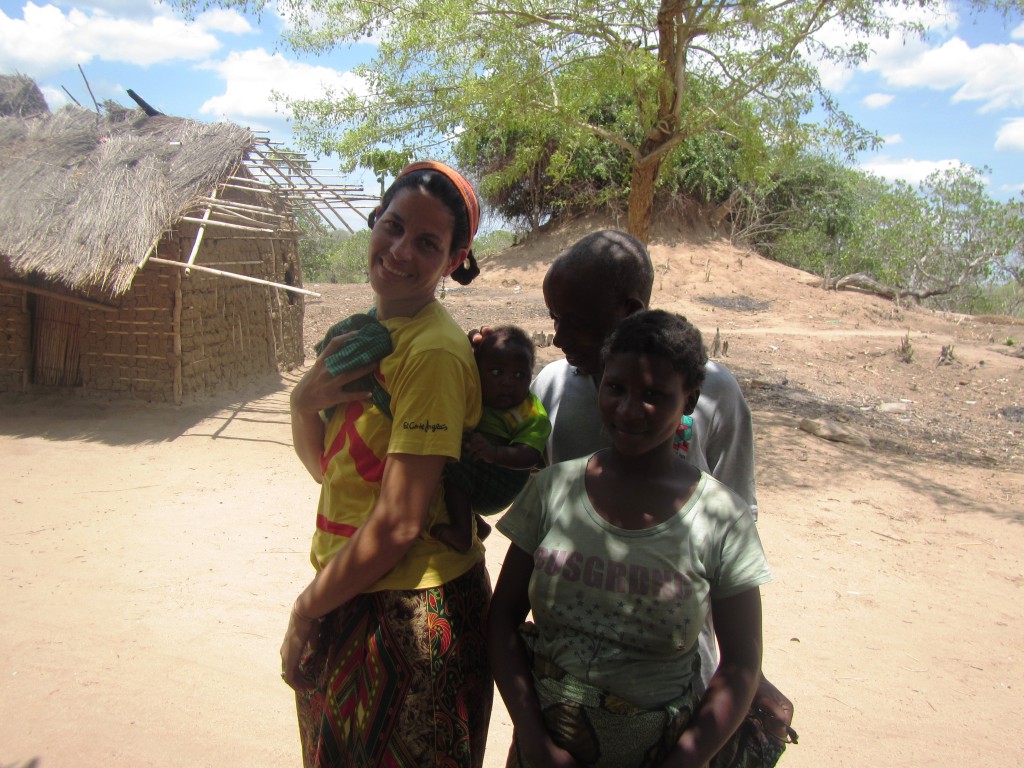 As relates to me, I do what it takes to stay well in the human, spiritual and mental. Even with the care I take, I do not escaped common diseases of this area. I have had my moments of spiritual weariness for neglecting my personal prayer however; I try to take it up again, to achieve inner peace. In relation to the study, the local language for me has been a limiting factor because I cannot take the time and concentration to study, most of the time people speak Portuguese. Personally, I feel blessed by God for allowing me and entrust this mission where by my presence and contributions will give the message that God has for this people leaving in the heart of the people I meet every day.
As relates to me, I do what it takes to stay well in the human, spiritual and mental. Even with the care I take, I do not escaped common diseases of this area. I have had my moments of spiritual weariness for neglecting my personal prayer however; I try to take it up again, to achieve inner peace. In relation to the study, the local language for me has been a limiting factor because I cannot take the time and concentration to study, most of the time people speak Portuguese. Personally, I feel blessed by God for allowing me and entrust this mission where by my presence and contributions will give the message that God has for this people leaving in the heart of the people I meet every day.
The community for me has been the home that we are built, we have a community day a week distributed as follows: 1st retreat, 2nd free, 3rd issue of training, 4th evaluation and when there is a 5th free. We recognize that it is not always easy. We are limited in our communication and integration for teamwork; important to work together as entrusted to us. We centralize our gaze on the person of Christ, our engine, our source for announcing “The Joy of Gospel”. Going through times of trial where each of us show our strengths and our limits. Pooling areas for improvement has been a way in which we manage to restore dialogue when we’ve moved away from each other, we’ve managed to walk together in this time, making in the best possible way our work and commitments. We have gone through different stages where we have learned to respect, act in solidarity and support us in what we are required or permitted, in times of illness, home activities, needs work, apostolate in the parish, days off, etc.
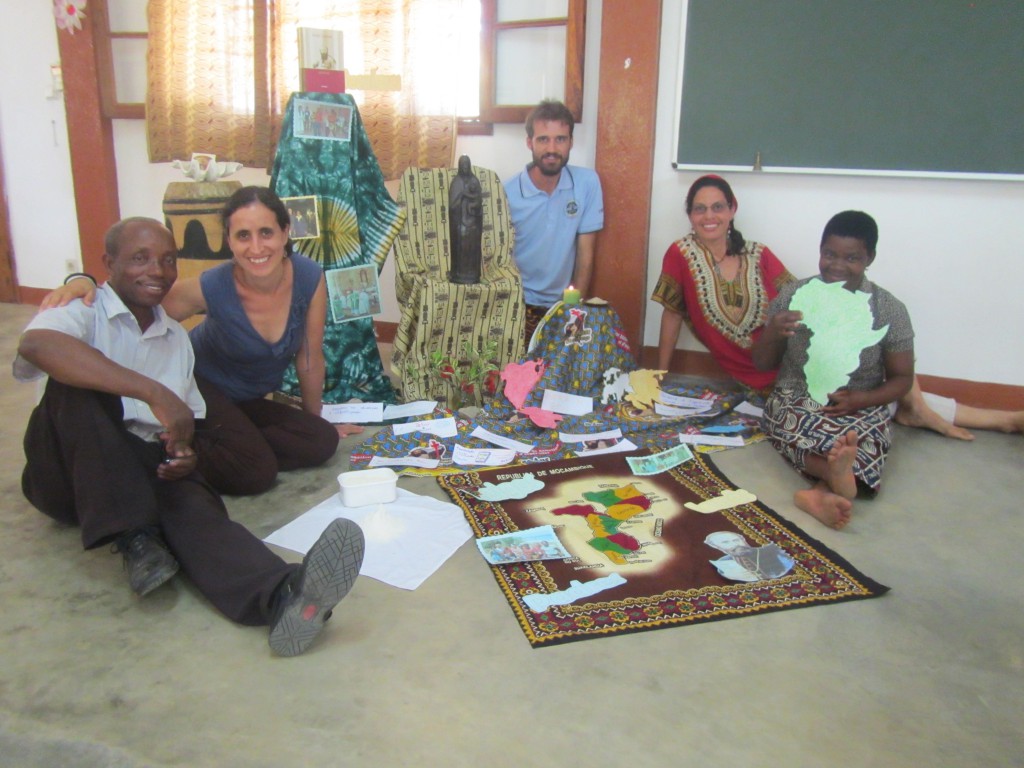 The CML in formation have been an important support in putting me on my missionary walk, in tune with the reality of the community that frequently, naked eye, is not seen. It is a challenge for me to be responsible in forming them, following a proposal made by international committee. We developed a training plan that meets the needs of the group and thus get to be in tune with the CLM of the world. With them, we make Morning Prayer Tuesday and Thursday one week in each house. They have participated in our annual meeting enriching the results we achieve because they always made their contributions to decision making. We did some missionary animation in the Comboni parishes and Women’s School of Nacala where the Comboni Sisters work, we find a group of Lay accompanying the sisters in Nampula; in some of the animations we put some religious accessories on sale to raise funds for the realization of our missionary work.
The CML in formation have been an important support in putting me on my missionary walk, in tune with the reality of the community that frequently, naked eye, is not seen. It is a challenge for me to be responsible in forming them, following a proposal made by international committee. We developed a training plan that meets the needs of the group and thus get to be in tune with the CLM of the world. With them, we make Morning Prayer Tuesday and Thursday one week in each house. They have participated in our annual meeting enriching the results we achieve because they always made their contributions to decision making. We did some missionary animation in the Comboni parishes and Women’s School of Nacala where the Comboni Sisters work, we find a group of Lay accompanying the sisters in Nampula; in some of the animations we put some religious accessories on sale to raise funds for the realization of our missionary work.
We had a missionary week in the community of Namajuba. We met another reality as it is an area where they are exploiting minerals from the earth and also some of the problems of our community (water, schools, land) are repeated and especially forming a good team with two young students of the ISC who joined the CLM group.
In the school, my work has been in accordance with what it is needed. Mainly in the Secretariat, from there you can do any work: cleaning at different school locations, sales, inventories, operating manuals, counseling and vocational guidance to students, etc. Always in coordination with the management, administration, pedagogical and head of boarding school; with the arrival of two workers, who sends the district, has boosted the tasks.
I am part of the vocational parish team with Brother Luis (Ita), Sister Lily (Mex) and in her absence Sister Maria Pia (Ita) joined. We organize monthly retreats with young people who want to have a vocational guidance to enter the seminary or religious congregations. It has been a missionary space I’ve always liked to work.
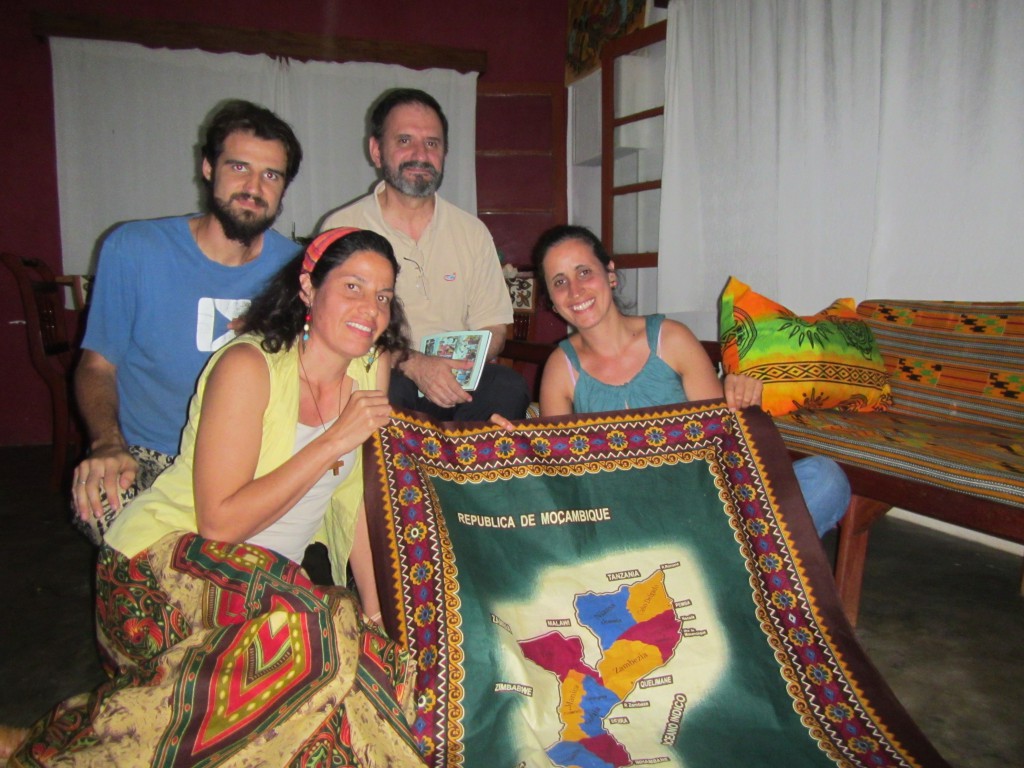 It was a jubilee year full of parties, starting with the opening of the 150th anniversary of the Comboni´s plan. We had our bimonthly meetings where we used the method see-judge-act to analyze the reality of our mission. Continuing with the diaconal ordination of MCCJ José Alberto and Abelino Diocesan, and also had their priestly ordination in May and December I participate in both of them. The perpetual vows of Sister Lily, the 50th anniversary of Carapira Parish, the Comboni assembly, the assembly the Comboni Missionary Sisters celebrating its 60 years in Mozambique. Celebrations of the Sacred Heart and St. Daniel Comboni, the 50 years of the School Carapira Industries, farewells, welcome and anniversaries.
It was a jubilee year full of parties, starting with the opening of the 150th anniversary of the Comboni´s plan. We had our bimonthly meetings where we used the method see-judge-act to analyze the reality of our mission. Continuing with the diaconal ordination of MCCJ José Alberto and Abelino Diocesan, and also had their priestly ordination in May and December I participate in both of them. The perpetual vows of Sister Lily, the 50th anniversary of Carapira Parish, the Comboni assembly, the assembly the Comboni Missionary Sisters celebrating its 60 years in Mozambique. Celebrations of the Sacred Heart and St. Daniel Comboni, the 50 years of the School Carapira Industries, farewells, welcome and anniversaries.
In the village of Carapira I always learn something new: their patience and availability committed me every day to give my best in performing any activity. It is not easy because I do not know the language, but training the leaders, in each of the different ministries, has being our main activity. All missionary experiences that I lived in Mexico have served me very much, allowing me to share what I have with respect for what they have, without imposing the way to live the faith, but enriching. We have great challenges as a missionary team in this sharing and receiving.
I sincerely appreciate your help and cooperation. We will keep in touch, united in prayer for the good of the mission, your Sister in Christ Missionary Beatriz CLM
P.D Jesus Missionary, who was born to show us with simplicity to be a Human Being in the Love of God, grant us the graces we need for this 2015.




